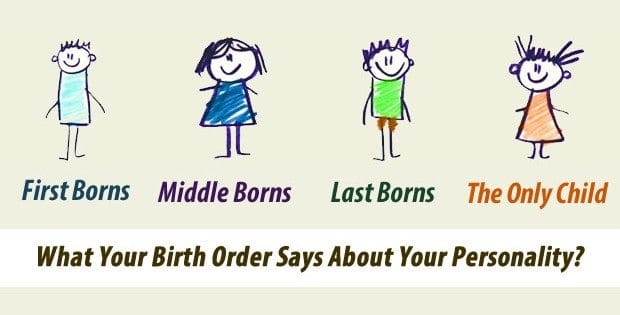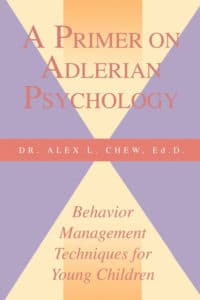
You may know more about birth order than you think. You have a basic understanding if you have heard the phrase “middle child syndrome” or about Jan Brady. If you notice and see differences in siblings who are not twins, birth order may play a role.
The concept of birth order has its roots in Adlerian, or Individual Psychology. Alfred Adler was a colleague of Sigmund Freud’s and one of the founding fathers in childhood psychology. Adlerian psychology believes more so that environment develops personality when it comes to nature versus nurture. In a Primer on Adlerian Psychology by Dr. Alex Chew, he discusses family dynamics, birth order theory, and how they affect personality and behaviors.

Birth order refers to the sequence or position of children in the family. Schulman and Nikely in 1971 identified five, Only, Eldest, Second, Middle, and Youngest. For families with more than one child, the firstborn was the only child for some time. After a second child enters the family, potential outcomes can be striving for attention, feeling superior, or unloved and neglected. Depending on the child’s environment, development can lead to competent or destructive behaviors.
The second child may feel incompetent, uncertain, or hyperactive trying to “catch up.” Often, the second child is the opposite of the eldest child. If you think of pairs of siblings, you know, how many are very different in many aspects? Then, we have the third born, which creates “the middle child,” commonly stereotyped in society. The middle child often feels uncertainty in the role of the family, may feel lost and think life is unfair. As Jan Brady would cry out, “Marsha, Marsha, Marsha,” her sense of discouragement was voiced to all viewers.
The youngest child, often dubbed “the baby of the family,” may behave like an only child and is often spoiled. The youngest child may become very successful due to feeling displaced or inferior. Studies have shown that large families have children with more stability, and the parents have less conflict with the children.
Dr. Chew then breaks down potential personality characteristics, behaviors, and how to address outcomes. A Primer on Adlerian Psychology has personality types listed, such as “the driver” and “the martyr,” to name a few. Birth order can have children develop behavioral patterns that can be positive or detrimental. Parents unfamiliar with the potential impact of birth order may have difficulty managing children’s misbehavior.
Birth order’s role in personality traits will be prevalent throughout life, including adulthood. Believe it or not, birth order also plays a role in romantic relationships and compatibility with a partner. Dr. Ryback discusses the importance of understanding birth order in Love, Sex, and Passion. He breaks down birth order into first, last, and somewhere in the middle. Using Adlerian Psychology, he discusses how two firstborns may fight for control while two lastborns may have too much fun.
Most people do not attribute their personality to birth order and rarely think about it. You may be unable to explain particular behaviors or traits you have, but birth order may contribute. Childhood Can Come Back to Bite You as an adult in relationships. Taking a further look into birth order may help you better understand yourself and others. Knowing more will help you see your behaviors and reactions and cope with others. Let us know in the comments if you think you are a product of birth order.
